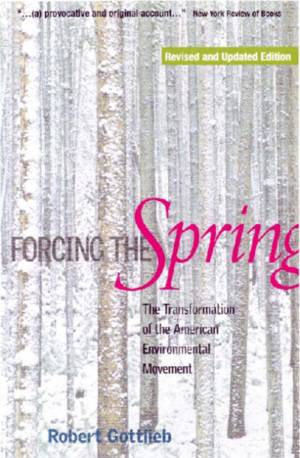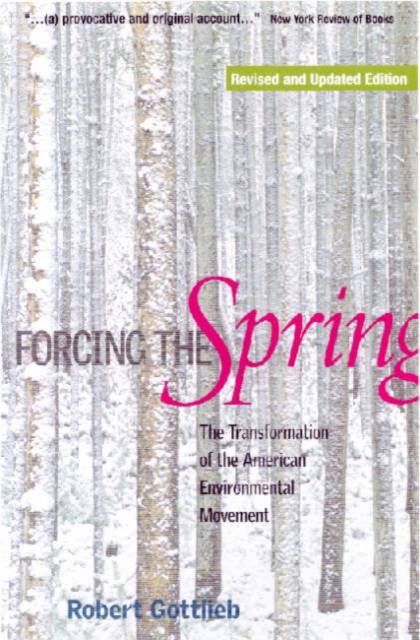
- Afhalen na 1 uur in een winkel met voorraad
- Gratis thuislevering in België vanaf € 30
- Ruim aanbod met 7 miljoen producten
- Afhalen na 1 uur in een winkel met voorraad
- Gratis thuislevering in België vanaf € 30
- Ruim aanbod met 7 miljoen producten
Zoeken
Forcing the Spring
The Transformation of the American Environmental Movement
Robert Gottlieb
Hardcover | Engels
€ 53,45
+ 106 punten
Omschrijving
Originally published in 1993, Forcing the Spring was quickly recognized as a seminal work in the field of environmental history. The book links the environmental movement that emerged in the 1960s to earlier movements that had not previously been defined as environmental. It was the first to consider the importance of race, ethnicity, class, and gender issues in the history and evolution of environmentalism. This revised edition extends the groundbreaking history and analysis of Forcing the Spring into the present day. themes and arguments into the 21st century, addressing topics such as: the controversy spawned by the original edition with regard to how environmentalism is, or should be, defined; new groups and movements that have formed in the past decade; change and development in the overall environmental movement from 1993 to 2004; the changing role of race, class, gender, and ethnicity in today's environmentalism; the impact of the 2004 presidential election; the emergence of the next environmentalism; Forcing the Spring, Revised Edition considers environmentalism as a contemporary movement focused on where we live, work, and play, touching on such hot-button topics as globalization, food, immigration, and sprawl. The book also describes the need for a next environmentalism that can address current challenges, and considers the barriers and opportunities associated with this new, more expansive approach. and faculty in a wide variety of fields including history, sociology, political science, environmental studies, environmental history, and social movements. It also offers useful context and analysis for anyone concerned with environmental issues.
Specificaties
Betrokkenen
- Auteur(s):
- Uitgeverij:
Inhoud
- Aantal bladzijden:
- 503
- Taal:
- Engels
Eigenschappen
- Productcode (EAN):
- 9781559638050
- Verschijningsdatum:
- 20/06/2005
- Uitvoering:
- Hardcover
- Formaat:
- Genaaid
- Afmetingen:
- 156 mm x 237 mm
- Gewicht:
- 884 g

Alleen bij Standaard Boekhandel
+ 106 punten op je klantenkaart van Standaard Boekhandel
Beoordelingen
We publiceren alleen reviews die voldoen aan de voorwaarden voor reviews. Bekijk onze voorwaarden voor reviews.











